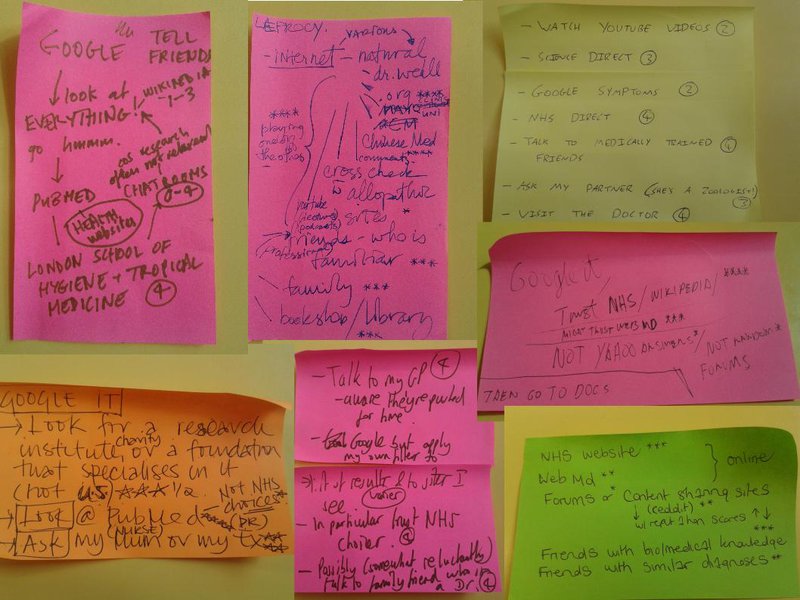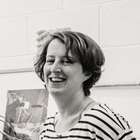Making science accessible – moving beyond open-access
Posted June 23, 2015 by Amber GriffithsMuch of our work at FoAM Kernow occupies the interstices between science, arts, and education. We've been spending time lately thinking about what the biggest gaps and problems are that we face, and what we might be able to do to help. One issue keeps raising its head – the accessibility of research findings to broader society.
We're witnessing a rise of open-access science publishing, where tax-funded research is gradually becoming more available to the people who paid for it – and it is probable that one day all public-funded research will be made open access. While this is fantastic progress, there will undoubtedly still be real problems with the accessibility of scientific research articles – many people don't even know these articles exist, and even if they do know the articles exist they may not know where to find them. Once someone does know where to find the research articles, there is still the challenge of knowing how to judge the reliability of the source, and how to interpret the work when it is usually written in a painfully unreadable jargon-filled style. University press offices and the popular media often add to the confusion by presenting science research in sensationalised forms, making it even harder to judge what is reliable information. Mistrust of scientists due to real or perceived biases and ethical issues (like the source of their funding, scientific fraud, and events like Climategate) also contribute to the difficulty in working out what to believe.
This really matters – scientific research plays into all sorts of aspects of our lives. Farmers need to know how to encourage biodiversity, which crops will grow best, and how to protect their livestock from tuberculosis – shoppers need to know whether the latest 'superfood' really does provide health benefits – house owners might like to know if their home will be under water in ten years time due to climate change – and those of us who get ill will be more likely to seek the right treatment if we have better access to reliable information. When some people don't have the same access to information as others, inequalities are born. Educational differences caused by social inequality account for substantial differences in life expectancy – and this is partly down to differences in health knowledge and literacy - in other words, being better at getting information and communicating with healthcare workers.
When you work in research it is easy to forget that the fundamental skills of finding and judging sources of information are not universal. Academics tend to focus on getting specific information about their research across, rather than illuminating people about the process.
We held a small workshop with a mix of people from different backgrounds simply to see where people go for their information. We had seven participants, including artists, an educator, a web designer, a graphic designer and a programmer, with about a 20 year range in ages. As is often the case, this was a somewhat WEIRD (white, educated, industrialized, rich, democratic) group of people, and also a very small group of people, so the results can not be extrapolated - but nonetheless it gives us a starting point. We 'diagnosed' the group with leprosy, and asked them to write down where they would go to find out more about their unfortunate sudden illness. You can see the results in the image.

A couple of our participants said they would look at primary research (via PubMed or Science Direct), but for the majority this didn't feature (also the two that did had undertaken some post-graduate level education, which is not reflective of the broader population). As anticipated, those who didn't use scientific articles said they wouldn't know how to get hold of them or what they could trust, and that the tone of scientific writing was a barrier. There were some sources of information that were perhaps surprising – heading to YouTube videos as a first port of call stood out, and heading to alternative and Chinese medicine sites before allopathic sites. We then asked them to rate how much they trust each of the sources of information (1* is the least, and 4* the most). Given our appalling scientific design, it's difficult to draw any serious conclusions from these ratings, but it is useful to see that people are making strong judgements about the reliability of the sources of information. They are also routinely using sources of information that they already know they don't trust.
Some of the ideas from the participants as to what might help:
- Digests/translations in plain language of all scientific publications – is this something that could be provided as a service to academics? Some publishers now demand lay summaries, but this is not enough detail, and not yet widespread. Changing the culture of academia to write more accessibly was a popular suggestion.
- Annotations of scientific papers and media stories by scientists and other citizens – up-voting of good annotations as for Reddit, or perhaps developing review sites like Metacritic.
- Training in science literacy e.g. through bite-size game-style teaching – examples were Duolingo and Codecademy.
- Broadening the outlets for talking about specific topics or research papers was popular e.g. via audiobooks, YouTube, live-streaming of events/discussions.
- Teaching in scientific literacy in schools at Key Stage 2-3 was viewed as particularly important due to a trickle-up effect of children teaching their parents.
We talked about what a workshop could look like:
- Generally people liked the idea of hearing about how research is done – including controls/repetition/random controlled trials/ethics, and also about how science publishing works – including open access/citations/impact factors/how science media works. Other topics of interest were understanding more about the 'impact of lobbying', and what is 'hidden by the media'.
- People were less interested in how decisions are made about what to research – how the funding system works/differences between government-university-private research.
- Most people were keen on the idea of a drop-in clinic (like the Citizens' Advice Bureau) where they could get help seeking information on whatever topic interested them.
- The idea of one-to-one sessions with science PhD students to help research a topic was popular.
We discussed locations, and what might constitute a 'neutral' location for a workshop or event. Universities were broadly dismissed and deemed to be unsuitable locations, but libraries and public space such as town squares with mobile buses were considered good options.
So – enough work for a few lifetimes! Our aim now is to follow up some of these approaches – we'll be developing the ideas and seeking funding and collaborators, so if you are interested do get in touch (email: amber@fo.am).
Created: 15 Jul 2021 / Updated: 23 Oct 2021


